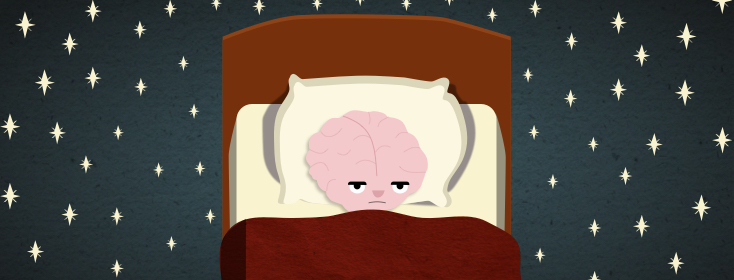The Struggle for Sleep, From Fatigue to Insomnia
I do a lot of things well. Some even very well. Extremely well. But you know what I don't do well? Sleep. Here's why (and later, some of the things I do to compensate).
The glory of quality sleep
Before my lung cancer diagnosis, I was a generally good sleeper. When my daughter was an infant, she developed a very consistent sleep pattern that involved waking at 6 AM every day. As a baby, though, that included frequent wakings and a pair of overly tired parents. My job at the time involved long days, often long commutes, and very little turn-around time. Yet, I was able to go to sleep as needed, sleep deeply, and wake quickly to get my day going. For the first six months of my daughter's life, I was getting by on less than six hours of sleep each night but still making sure that it was quality sleep. Her sleep improved, gradually doubling the amount I was getting -- but my body was used to a six-hour rest period and stayed that way.
Over the next eight years, regardless of my work schedule and the fact that I was working more and more from home, I continued to sleep about the same six hours. Deeply. With progressively heavy snoring, I'm told. Then I got sick, began suffering from shortness of breath, became fatigued, and my sleep sometimes lengthened. My days included more nap time. But I was never rested. What appeared to be walking pneumonia opened the door to the discovery of my tumor and life on chemotherapy. For the next two years, my sleep would be kind of awful. Most of the time I still woke at 6 AM, but I was progressively less happy about that. Sometimes I would only get a couple of decent hours rest; sometimes I would sleep longer, but fitfully. Regardless of the hours my eyes were shut, I never felt rested.
The impact of cancer on my sleep
There were a multitude of issues affecting my sleep. The chemo gave me hot flashes, I would get panic attacks in the middle of the night, dreams seemed more visceral, anxiety kept me awake, digestive issues plagued me, and I had to urinate every hour (on the hour) both day and night; no matter how tired, at the best of times I was still only on the edge of sleep, teetering one way, then the other. And then there was the pain.
I have dealt with chronic pain for years, so it is something that I am generally used to. It is annoying, and it was frequently hidden by the other issues associated with my treatment. In fact, it had not disrupted my sleep for years before my cancer treatment. Only now, after being blurred out by the fog of chemo, when the pain did present itself at night it was always front and center and almost always would prevent me from finding a comfortable position from which sleep could even be attempted.
The general fatigue that increased with every month eventually led to me falling asleep earlier and earlier, but because of my personal biological clock -- and the need to get up and pee every hour -- this consistently resulted in gaining me a "second wind." In other words, I could not go back to sleep.
Compounding all of these sleep issues, my chemotherapy also gave me a general feeling of insomnia. When all else seemed to fall into check, I would still lie awake most nights, unable to completely shut off. My brain, regardless of the thick cloak laid over it by mental and physical fatigue, resisted being neatly tucked in.
Read Part Two -- The Struggle for Sleep and How I Finally Got Rest
Editor's Note: We are extremely saddened to say that on October 21, 2018, Jeffrey Poehlmann passed away. Jeffrey’s advocacy efforts and writing continue to reach many. He will be deeply missed.

Join the conversation